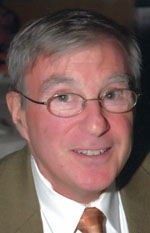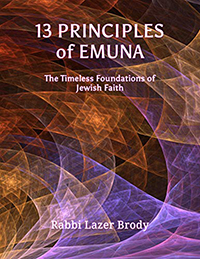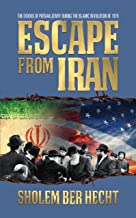Author Adopts Maimonides’ Principles as True Judaism
Emuna is the Hebrew word for faith, and in his newest book, 13 Principles of Emuna, Rabbi Lazer Brody passionately reexamines Maimonides thirteen assertions, ranging from the fervent belief in one God to acknowledging the future resurrection of the dead and the coming of the Messiah, through a traditional orthodox-Jewish frame of reference. [Fred Reiss, Ed.D]
Author Adopts Maimonides’ Principles as True Judaism Read More »
Books, Poetry & Short Stories, Fred Reiss, EdD, Jewish Religion


